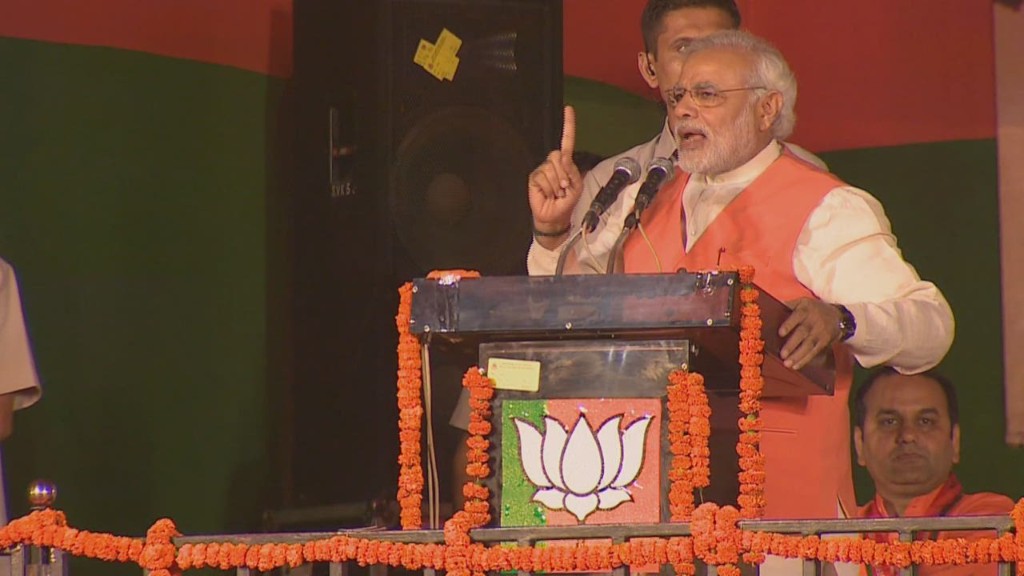
"Call me a hopeful fool, but I think it can be done." So says Dhruve Sehgal, the man who wants to be India's own Tom Ford.
The New Delhi-based fashion designer and manufacturer is buying into the story of India's economic rebirth, as told by the country's Prime Minister Narendra Modi.
Six months ago, Modi swept to power in a landslide on the promise of getting India's fast-growth model back on track.
The country has experienced less than 5% GDP growth in the past two years, yet the prime minister is targeting 7% to 8% within the next three.
Modi hopes people like Sehgal will drive that growth as he focuses on unshackling small and medium-size companies.
Related: India's $74 million Mars mission cost less than 'Gravity'
Manufacturing makes up only about 14% of the country's economic activity. Compare that with China's 34% of GDP and it's easy to see why Modi is pushing a "Make In India" campaign.
Small business has always been neglected by the Indian government. Many of the rules and regulations governing them are nothing short of "archaic," said R. Narayan, an official with the Federation of Indian Chambers of Commerce and Industry.
For proof, look no further than a recent World Bank report on best countries to do business in. India's ranking fell two places to a dismal 142 out of 189 countries.
To start a business in India takes an average 28 days. In virtually all developed economies it's less than a week.
"It's a bad place to do business, because of the amount of time it takes to do a little change," said fashion designer Sehgal. "For a small project like ours you have to manage everything on your own. You don't expect help from anyone, anywhere."
On top of that he has to deal with daily power outages at his three factories -- due to India's creaking and underfunded infrastructure -- and the "eyes of greedy people," meaning those he has to pay off.
Modi is promising to change all that. "Cut the red tape and roll out the red carpet" is one of the administration's many slogans.
As a marketing campaign it's been successful. A new poll shows Modi's personal approval rating among urban Indians --- almost half the population -- is an astonishing 92%.
Related: India looks for love on Tinder
But change may be less revolutionary than evolutionary. He wants members of the country's vast bureaucracy to be more accountable and more efficient -- basically to do their jobs better. And he is turning to experts, rather than ministers, to advise on what changes to make.
Sehgal, for one, said his expectations have risen dramatically. "I think it's going to change soon."
And Narayan said that Modi will he helped by the nation's pent-up demand for reform.
What Modi has that none of his predecessors have had for the past 30 years is a sweeping mandate as a result of his crushing electoral victory. The voters have put their faith in him, and now it's his turn to repay that trust.
But at the moment there's little in the way of actual improvement. Modi now has to show this boisterous democracy of 1.25 billion people that things really are different.


